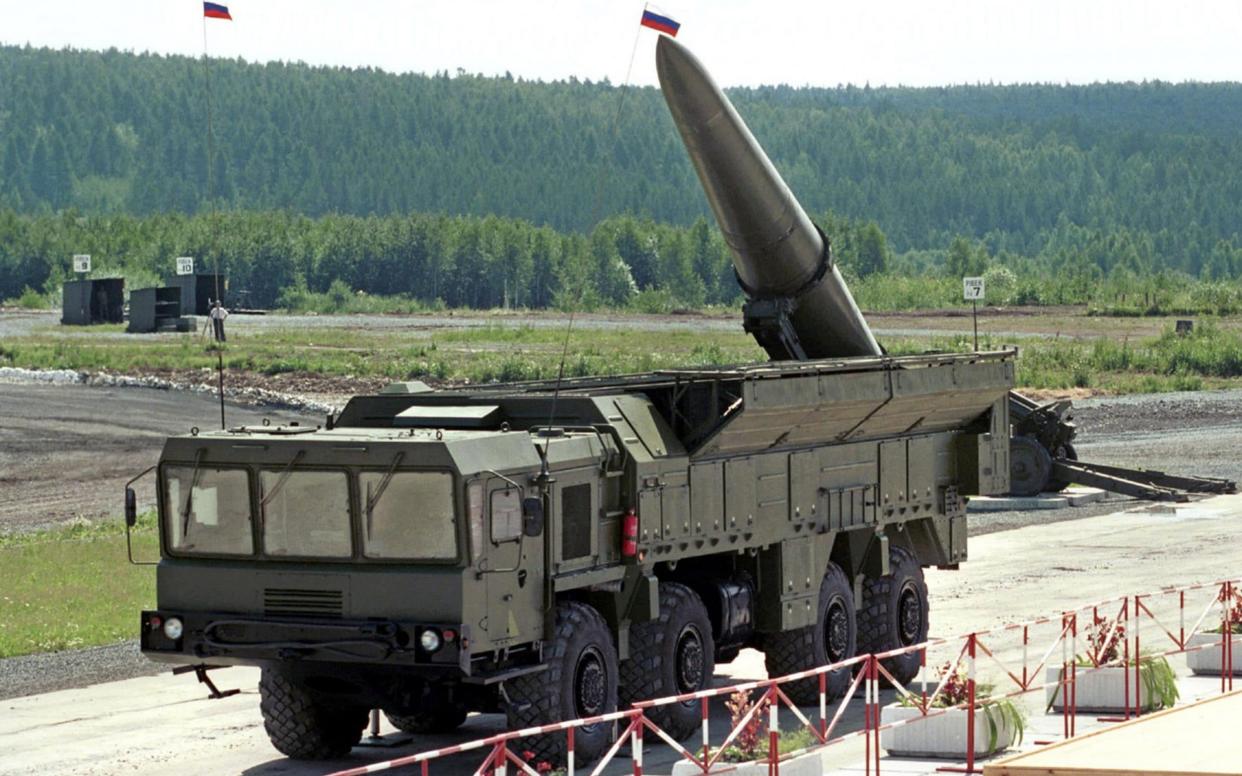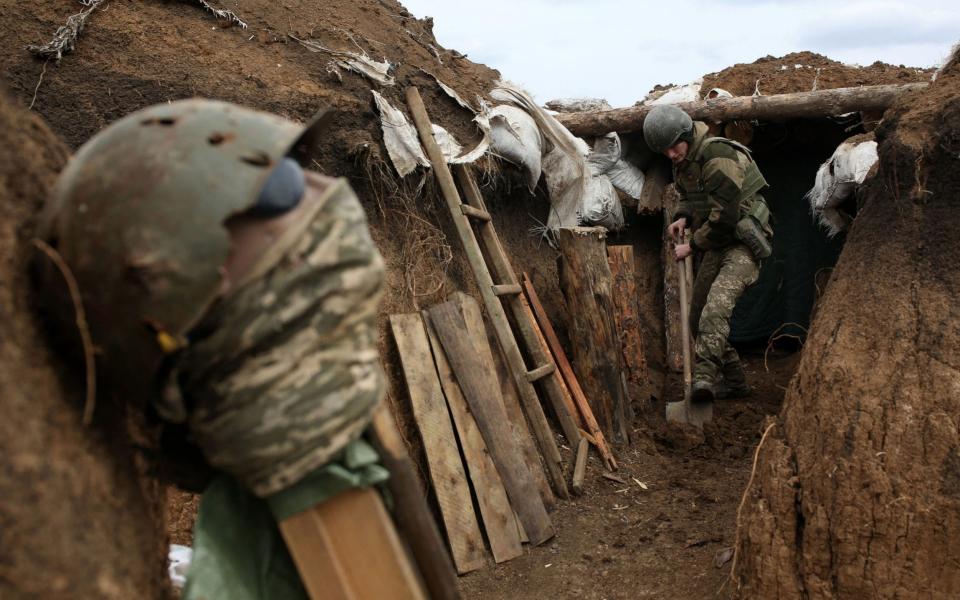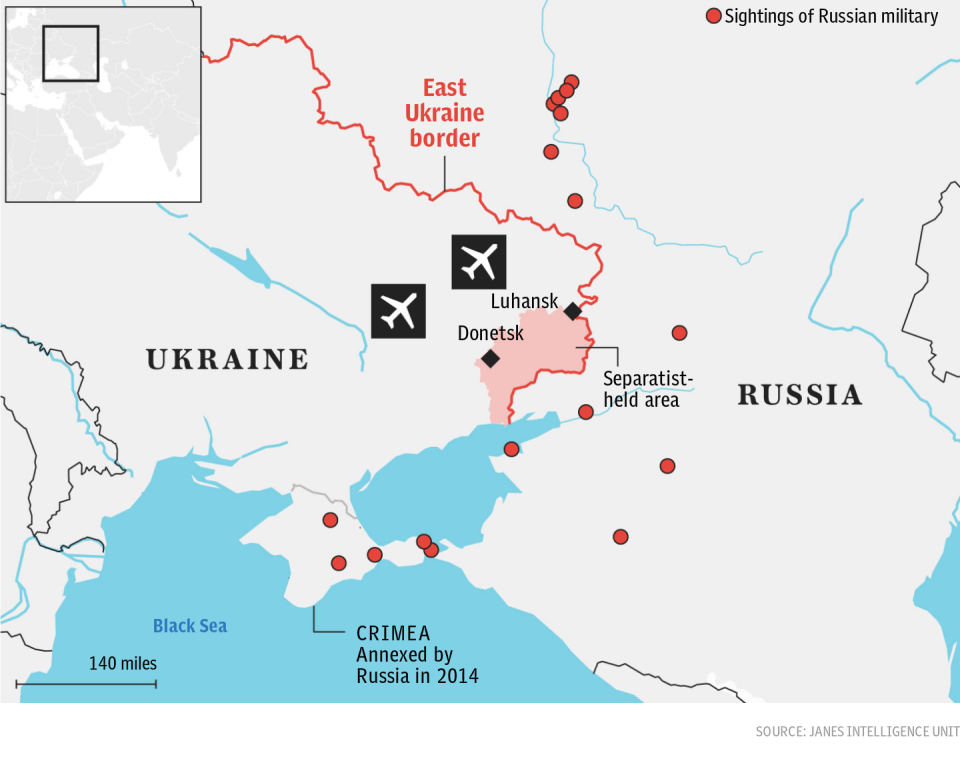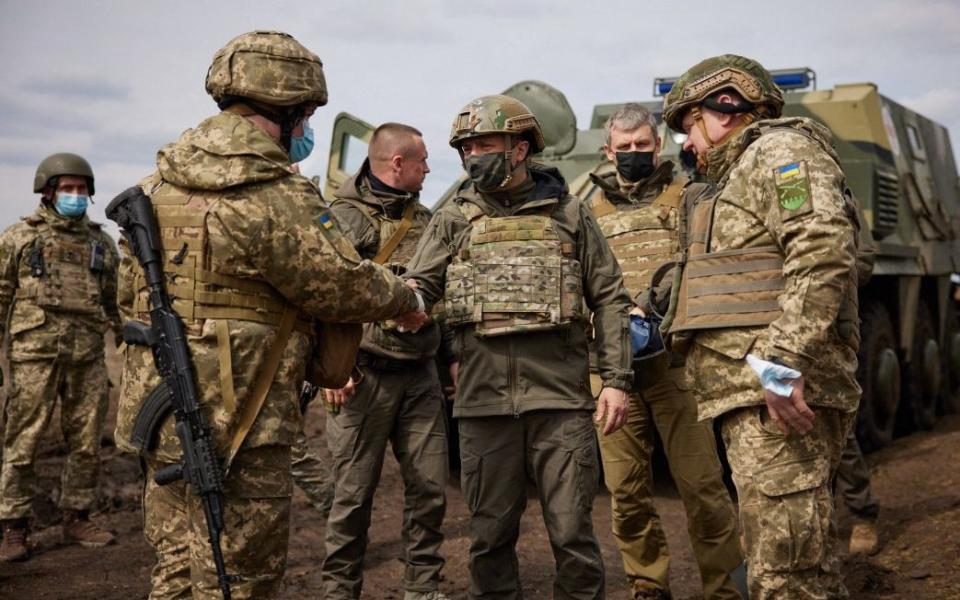US expresses concern as Russia 'sends ballistic missiles' to Ukraine border

- Oops!Something went wrong.Please try again later.
The United States on Thursday said it was discussing Russia’s military build-up near the Ukrainian border with Nato allies as fresh reports showed Russia deploying ballistic missiles to the area.
Jen Psaki, the White House press secretary, said that Washington was “increasingly concerned” about what has been described as Russia’s largest military manoeuvres in the area since the break-out of hostilities in eastern Ukraine in 2014.
“Five Ukrainian soldiers have been killed this week alone. These are all deeply concerning signs,” Ms Psaki told reporters on Thursday.
Russia’s military build-up was first reported last month as social media footage showed an unusually large number of tanks, troops and other equipment moving across the country to the south and the south-west.
Fighting between Russia-backed separatists and Ukrainian government troops in eastern Ukraine first broke out following Russia’s 2014 annexation of Crimea but had subsided in recent years.

On Thursday, open-source intelligence experts said that Russia has deployed ballistic missiles in the country’s south alongside fourteen ground troop units.
Janes, a well-respected military analysis group, said that its experts have identified the Iskander short-range ballistic missile systems among Russia’s most recent deployment in the Voronezh region.
Iskanders were previously seen in Russia-occupied Crimea but their deployment near the conflict zone in eastern Ukraine has fuelled fears over Russia’s ultimate intentions in the area.

Janes also reported that tanks and artillery were among the troop units moved by train into Voronezh, where a staging post with a field hospital and a large communication system has been set up.
Volodymyr Zelenskiy, the Ukrainian president who was elected in 2018 on a promise to end the war in the east, flew in to the frontline on Thursday in a show of support for his troops two days after he called on Nato to offer Ukraine a path to the Western military alliance as the only way to stave off potential Russian aggression.
Images released by his office showed Mr Zelenskiy in the trenches clad in a helmet and bulletproof vest, handing out awards to Ukrainian soldiers and shaking their hands.
"Thank you for keeping people calm and protecting our land. You are a real example of heroism and dedication," Zelenskiy said.

The deployment of the Iskander missiles was reported on the day when German Chancellor Angela Merkel, who has taken an active role in mediating the conflict before, phoned Vladimir Putin, the Russian president and “demanded that this build-up be unwound in order to de-escalate the situation,” according to her office.
The Kremlin has rejected the accusations of whipping up the tensions, claiming that its deployment was purely defensive.
However Dmitry Kozak, the Kremlin's pointman on relations with Ukraine and the separatists, on Thursday said that Russia could be “forced” to defend its citizens in eastern Ukraine under certain circumstances.
He warned that an escalation in the conflict would be "the beginning of the end of Ukraine", describing that scenario for the ex-Soviet country as "not a shot in the leg, but in the face".
In a statement on Thursday, Russian foreign ministry spokeswoman Maria Zakharova said Nato's support of Ukraine "does not contribute to security" and "the settlement of the conflict".
She added that Moscow was concerned about "financial and logistical support of the Ukrainian armed forces by Nato countries", as well as the alliance supplying lethal weapons and Western instructors training Ukrainian military personnel.
President Joe Biden has previously affirmed the US’s “unwavering support” for Ukraine’s sovereignty and territorial integrity.
The president has taken a strong stance on Russia since taking office in January, imposing sanctions on Russian officials and promising a retaliation for the massive “SolarWinds” cyberattack blamed on Moscow that infiltrated US government computer systems.
Read more: Is Russia preparing for another offensive in its long-simmering war with Ukraine?

